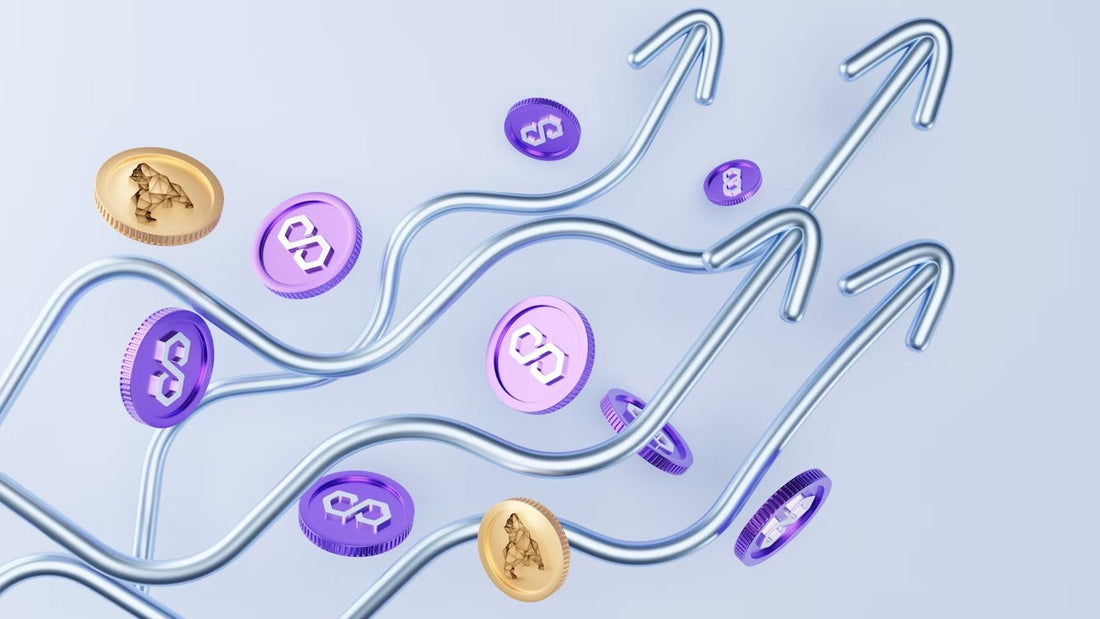Periods bring enough drama without sleep disruption. But if you're regularly struggling through the night during PMS, you're far from alone—and what's causing it might surprise you. Hormonal shifts, emotional changes, and nutrition all combine to impact sleep quality.
Understanding PMS-Related Sleep Issues
Why Sleep Worsens During PMS
-
Hormonal changes: In the luteal phase (1–2 weeks before your period), levels of estrogen and progesterone fluctuate dramatically. Progesterone—which usually promotes sleep—drops before menstruation, disrupting your natural sleep rhythm, decreasing deep (slow-wave) sleep, and increasing wakefulness .
-
Physical discomfort: Symptoms like cramping, breast tenderness, and bloating increase physical stress and nighttime awakenings. A survey found that over 70% of women with PMS report insomnia or non-restorative sleep .
- Mood and anxiety: Mood swings, heightened stress, and irritability are common. Research connects premenstrual distress with insomnia, where increased anxiety keeps women tossing and turning.
Progesterone, GABA & Melatonin: The Triple Link
During the luteal phase of your cycle, the hormone progesterone rises and then falls rapidly just before your period. Progesterone plays a crucial role in promoting the production of GABA, a neurotransmitter that calms the nervous system and encourages sleep. As progesterone declines, GABA levels also dip—leading to heightened anxiety, emotional sensitivity, and trouble falling asleep. This hormonal withdrawal also reduces natural melatonin production, making your internal sleep-wake clock even more erratic during PMS. For some women, this drop is steep enough to cause noticeable insomnia, irritability, or light, interrupted sleep.
Source: https://academic.oup.com/jcem/article-abstract/96/4/E614/2720877?redirectedFrom=fulltext
Nutritional Support for PMS Sleep
1. Magnesium-Rich Foods
Magnesium plays a pivotal role in calming the nervous system and promoting sleep:
-
Natural sources: Spinach, pumpkin seeds, almonds, black beans, and bananas are great options.
-
Why it helps: Magnesium increases GABA (a calming neurotransmitter), improves insulin sensitivity, and relaxes muscles—reducing cramps and anxiety, both of which improve sleep [CITATION_NEEDED].
-
Daily guide: Women need ~300 mg. A magnesium-packed evening snack (Greek yogurt with almond butter + banana) can be both delicious and calming.
2. Tart Cherry: A Natural Sleep Aid
-
Melatonin content: Tart cherries contain small amounts of melatonin, the sleep hormone, known to improve both sleep duration and quality.
-
Research: A study showed participants who drank tart cherry juice slept 84 minutes longer and fell asleep faster compared to placebo.
-
How to use: A small glass of tart cherry juice or a handful of fresh/frozen cherries in evening smoothies can be helpful during PMS week.
3. Tryptophan-Containing Foods
Foods rich in tryptophan support serotonin and melatonin production:
-
Examples include: Turkey, eggs, nuts and seeds, dairy, and oats.
-
An evening bowl of oatmeal topped with yogurt, flaxseeds, and almonds combines tryptophan and magnesium—ideal for sleep during the luteal phase.
4. B-Vitamins for Hormone Support
Key B-vitamins like B6 and B12 regulate neurotransmitters and mood:
-
Sources: Whole grains, chickpeas, salmon, and leafy greens.
-
Benefits: B6 supports serotonin production; B12 contributes to melatonin synthesis and normal mood function—both crucial during PMS.
5. Antioxidant & Anti-Inflammatory Foods
Chronic inflammation and oxidative stress worsen PMS symptoms:
-
Foods to focus on: Berries, leafy greens, nuts, avocado, and fatty fish—all rich in antioxidants, omega-3s, zinc, and selenium.
- Benefits: These nutrients reduce inflammation, balance hormones, and support mood—leading to better sleep quality.
Hydration, Caffeine & Alcohol
Hydration: Drink water consistently through the day to reduce bloating, but taper off fluids in the evening to minimize nighttime urination.
Caffeine: Avoid after midday. Caffeine reduces deep sleep and increases both arousal and anxiety—etched more severely during PMS [CITATION_NEEDED].
Alcohol: Though initially sedating, alcohol disrupts REM and deep sleep. Save it for fun occasions and not during the luteal phase.
Lifestyle & Behavioral Strategies
1. Sleep Rituals
-
Consistent bedtimes: Go to bed and wake up within 30 minutes each day—even weekends.
-
Wind-down routine: Take a warm bath or engage in gentle yoga and breathing to lower cortisol.
2. Light Exposure and Screen Use
-
Morning sun exposure resets circadian rhythm.
-
Limit evening blue light: Stop using screens at least 60 minutes before bed; use warm lighting.
3. Exercise
-
Aerobic + strength training: Regular moderate exercise improves sleep quality.
-
Timing matters: Avoid intense workouts close to bedtime; shift to neutral morning or afternoon sessions.
4. Stress-Reduction Techniques
-
Evening journaling or gratitude logs can clear racing thoughts.
- Mindful breathing or meditation calms the sympathetic nervous system and improves sleep onset during PMS.
The PMS-Cortisol Connection
Not many women know this, but the stress hormone cortisol can spike in the luteal phase—especially if PMS symptoms are severe. Elevated cortisol at night blocks melatonin release and delays the body’s natural readiness for sleep. That’s why some women feel “tired but wired” in the days leading up to their period. What helps? Evening stress-reduction rituals, like deep breathing, stretching, or magnesium-rich snacks, can help bring cortisol down. Anti-inflammatory foods and antioxidants such as CoQ10 also help lower this hormonal stress burden on a cellular level.
Some Women Are Genetically More Sensitive
Here’s something rarely talked about: genetic sensitivity to hormonal shifts. Studies show that some women’s brains respond more dramatically to the monthly ebb and flow of estrogen and progesterone—especially in areas related to mood and sleep. That means two people with identical hormone levels might experience PMS very differently. If you’ve tried every lifestyle change and still feel like your body “overreacts” before your period, it’s not in your head. The solution? Creating a PMS-specific sleep routine (nutrients, habits, wind-down cues) helps buffer that internal overreaction, especially when used consistently across cycles.
Cycle-Syncing Your Sleep Strategy
Many women are now practicing cycle syncing—adjusting their nutrition and habits according to menstrual phases—for better energy, mood, and sleep. Here’s how it works:
|
Phase |
What’s Happening |
Sleep Focus |
Nutrition Tip |
|
Follicular |
Estrogen rises, energy increases |
Build strong routines |
Protein + complex carbs |
|
Ovulatory |
Peak estrogen, sociability & alertness |
Watch stimulation |
Stay hydrated + leafy greens |
|
Luteal |
Progesterone peaks then falls (PMS) |
Prioritize deep sleep |
Magnesium + tart cherry + GABA |
|
Menstrual |
Hormones at their lowest |
Restorative sleep |
Iron + omega-3 + warm comfort food |
Cycle syncing isn’t about being rigid. It’s about giving your body what it needs most at the right time—and sleep support is a big part of that.
Common Myths—And the Real Story
-
“Taking PMS sleep issues is just a part of being female.” → Sleep disruptions during PMS are treatable.
-
“Only melatonin can fix sleep problems.” → Melatonin helps, but lifestyle, nutrition, stress, and circadian alignment matter too.
- “Supplements are unnecessary if I eat well.” → A balanced diet is essential but modern stressors increase your nutrient needs. Supplements can bridge gaps—without replacing real foods.
Gentle Ways to Support Sleep Hormones
When nutrition and sleep hygiene aren’t quite enough, targeted supplementation can offer much-needed support—especially during the luteal phase of your cycle, when hormonal fluctuations are at their peak. Here are some evidence-backed options that work in sync with your body’s natural rhythms:
Damehealth Magnesium & Tart Cherry Supplement
Getting enough magnesium through diet alone can be tricky—especially during PMS, when your body is under more stress and craves more support. A high-absorption form like magnesium glycinate is one of the most gentle and effective forms for calming the nervous system, easing muscle tension, and supporting GABA production for deeper sleep.
Tart cherry extract is naturally rich in melatonin and has been clinically shown to enhance both sleep duration and quality. Together, these two ingredients create a powerful combination that helps relax your body, reset your circadian rhythm, and promote restorative rest—all while addressing PMS-related inflammation and tension.
DameHealth Melatonin Gummies
If your body needs an extra nudge to fall asleep on time, especially when your cycle disrupts your internal clock, low-dose melatonin can help smooth the transition into sleep—without the grogginess that often comes from higher doses.
DameHealth’s Melatonin Gummies offer a convenient, travel-friendly Sachet option to help gently reset your rhythm. The sachets are perfect for your bedside table, carry-on, or period kit, ensuring consistent sleep support even on busy or stressful days.
Antioxidant Support: DameHealth Bio-CoQ10
Sleep during PMS isn’t just about hormones—it’s also about cellular stress. Your mitochondria (the energy factories of your cells) work harder during this phase, and inflammation can silently build up from hormonal shifts, bloating, and cramping.
This is where Coenzyme Q10 (CoQ10) shines. As a potent antioxidant, it helps fight oxidative stress, protect reproductive tissues, and enhance cellular energy—making it a valuable ally for both sleep and overall hormone balance.
DameHealth’s Bio CoQ10 is designed for high bioavailability, meaning your body can actually absorb and use it efficiently. Supporting your cells during PMS with CoQ10 may also help reduce fatigue, regulate mood, and ease premenstrual sleep struggles over time.
FAQs
1. Can I take melatonin and magnesium together?
Yes—they work through different mechanisms: magnesium supports muscle relaxation and GABA, while melatonin regulates circadian rhythm. Both can be used during PMS under 3–4 months.
2. How much magnesium enhances PMS sleep?
Common sleep-supportive dosage is 200–300 mg per night as magnesium glycinate. Adjust based on tolerance (some people experience mild digestive effects).
3. Can CoQ10 influence sleep?
While not a direct sleep aid, CoQ10’s antioxidant and anti-inflammatory effects reduce physiological stressors that disrupt sleep during PMS.
4. Are these supplements safe long-term?
Short-term luteal-phase use is generally safe. For ongoing use, check with healthcare providers—especially if you're on medication or pregnant.
Is It PMS or PMDD?
If PMS-related sleep issues are regularly debilitating—triggering emotional outbursts, panic, or prolonged insomnia—you may be dealing with PMDD (Premenstrual Dysphoric Disorder). Unlike PMS, PMDD is a clinical condition affecting 5–8% of menstruating women and is characterized by extreme mood swings, sleep disturbances, and tension before menstruation. Nutrition and supplements still play a helpful role, but many women also benefit from therapy, cycle tracking, or medical support. If PMS symptoms are impacting your ability to function for more than 3–4 days a month, talk to a healthcare provider.
Sleepless nights during PMS aren’t inevitable—they’re signals that your body needs extra care. With the right nutrient support (magnesium, tart cherry, tryptophan, antioxidants) and smart habits (routine, stress control, exercise), you can drastically improve PMS sleep quality.
Supplements like magnesium & tart cherry, low-dose melatonin gummies, and Bio CoQ10 offer safe, effective backing when paired with a nutrient-rich diet and restful lifestyle—empowering you to reclaim restful sleeps and smoother cycles.





